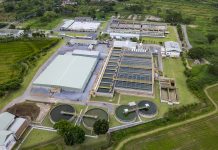Advances in battery recycling offer a significant opportunity for countries to build caches of precious minerals used in electric vehicles, and additionally mitigate geopolitical risks arising notably from China’s dominance, according to Cleantech Group.
The U.S., the EU, and China have hit multiple milestones in advancing circularity – a sustainability method that encourages reuse and recycling – and today have access to technologies that use significantly less energy and nearly halve emissions from mineral production by recycling battery minerals, such as lithium, nickel, graphite and cobalt.
According to the IEA, global demand for lithium is estimated to grow 870% by 2040, with demand for graphite, nickel and cobalt all more than doubling. In this environment, recycling is a prudent choice, enabling nations to unlock cheaper, lower emissions, and domestic supplies of battery materials for manufacturing.
“Battery manufacturers, automobile OEMs, and refineries are creating localized recycling supply chains to feed the surging demand for battery minerals,” said Parker Bovée, Cleantech Group Associate, Waste and Recycling.
As per the press release, European and Chinese automakers are expected to leverage direct recycling, one of three key processes to emerge, as European companies seek higher returns on extended producer responsibility (EPR) mandates and China pursues improved economics on LFP (Lithium Iron Phosphate) battery recycling.






























